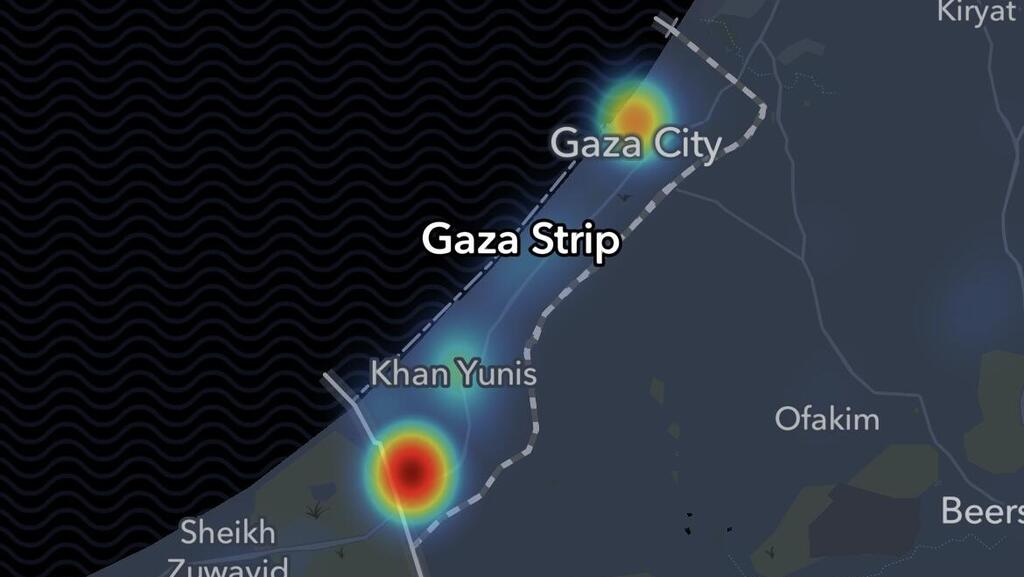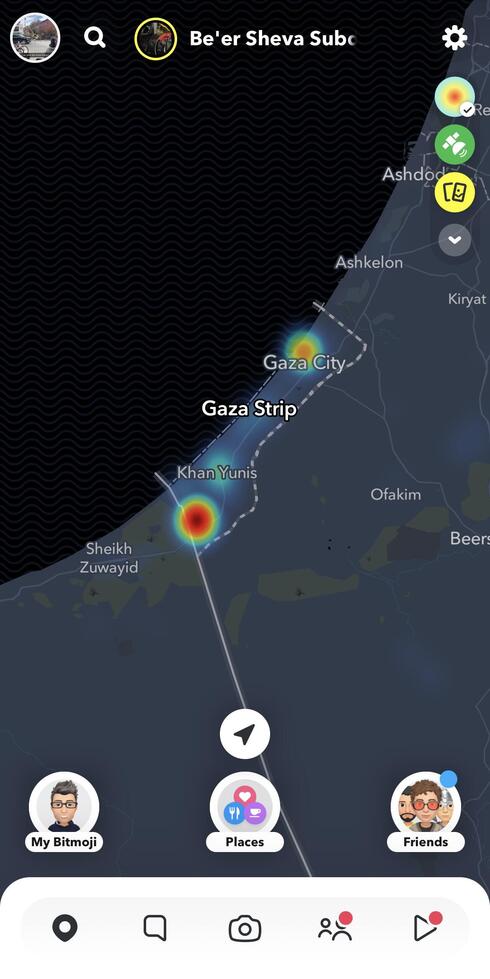
ISRAEL AT WAR
“#We_want_to_live”: an American Jew used Snapchat to speak to Palestinians in Gaza
“We are not Hamas. We don’t love Hamas. We would love to live in peace,” said an unnamed Palestinian man to Micah Gantman using the application.
“I'm a Jew in NYC and I made friends with a Palestinian in Gaza this week,” posted Micah Gantman on social media application X. “Using @Snap Maps I was able to build a personal connection with a complete stranger and learn from their first-hand experience of what’s happening on the ground in real-time.”
Gantman is a former Product Manager at Snap Inc. which owns the social media application Snapchat. While less popular in Israel, the app is highly popular in the U.S., particularly among young people. Alongside other social media applications like TikTok and Instagram, many young people are turning to Snapchat to get information about Israel’s war against Hamas.
Snapchat allows users to upload short videos, similar to the stories feature on Instagram. One of its unique features is that it allows users to view videos according to the location from which they were uploaded, which allows users to view and come into contact with other users. The content can thus offer a glimpse into the lives of users on the ground in Gaza or Israel.
Users can contact people in a specific area on the map, which is how Gantman made contact with Palestinians in Gaza. Gantman shared one of his conversations with a Palestinian in a series of Posts on X. Gantman told CTech that this was one of several conversations with Gazans over the app. "I did reach out to more, but only a few added me back and responded. Most didn’t share more than a few general sentences and I didn’t want to put extra pressure on anyone."
Israel’s war against Hamas broke out on October 7 when thousands of Hamas terrorists broke through Israel’s border with Gaza, massacring scores of Israeli civilians inside Israeli territory. At least 1,400 Israelis were murdered, mainly civilians including children, women, and the elderly, with tactics reminiscent of ISIS. Thousands more were injured and about 240 people including women, children, babies, the elderly, and soldiers were abducted by Hamas into Gaza. In response, the IDF has been attacking Hamas infrastructure in Gaza for three weeks in an attempt to dismantle its rule.
Gantman explains that he wanted to speak to Palestinians in Gaza to understand why they weren’t evacuating from the north to the south of the Strip, despite Israeli warnings and amid reports that Hamas is forcibly preventing Palestinians from evacuating. He used Snapchat and “zoomed in on Gaza and tapped different locations to see user-generated content locals share on the map, raw, and uncurated by media outlets. When I saw a few people posting in English, I decided to add them and see if we could have a conversation."
Related articles:
Gantman sent a video of himself “to build trust” and asked why people in the north had not moved to the south. One of the responses he received was from a Palestinian located in the Jabalia Refugee Camp who declined to disclose his name due to fear that he would be in danger from Hamas. The man told Gantman that while some people were killed in bombings en route to the south, Hamas also doesn’t allow them to leave.
Though initially the man was reluctant to say anything about his feelings towards Hamas, eventually he told Gantman to tell Americans and the rest of the world that, “We are not Hamas. We don’t love Hamas. We would love to live in peace. We fight for peace. We don’t hate. Gaza \[is\] 2.6 million people. Hamas is only 10%. They \[are\] using us to collect money and run \[the\] war.”
When asked how Hamas has prevented so many people from traveling south if they are only 10% of the population, the man responded that, “They have all \[the\] control and power. They \[are\] killing many people from Fatah in 2007. People \[are\] afraid after that.” He explained that Hamas steals money from Palestinians via exorbitant tax fees, such as cigarettes, which he said have a 400% tax and cars which require a 75% tax paid to Hamas.
The man also shared with Gantman an Arabic hashtag #بدنا_نعيش which translates to “#We_want_to_live” and is being used by Palestinians in Gaza not to blame Israel but to direct outrage towards Hamas, asserting that they want to live in peace but can’t with Hamas. He expressed that Gazans feel abandoned to Hamas in this regard including by other Arab states whom they expect support from.
Among the many Arabic Posts using the hashtag is one that says “70% of the population of the Gaza Strip have become displaced... because of Hamas! All of this is because of the dogs of Hamas...more than 10,000 martyrs.” Another says that Hamas “kidnapped Gaza from the Palestinian Authority and the people of Gaza live in siege and hunger because it is not recognized like the Palestinian Authority. Hamas leaders in Qatar hotels and Israeli transfers in Qatari banks to Hamas leaders.”
The Palestinian man told Gantman, “I would love to see Americans support peace and blame Israel about the bad things they did to us, but we need support \[for\] freedom from Hamas and other Islamic groups. They \[are\] killing us every day.”
Gantman notes that while this is “just one voice in Gaza, it's authentic,” and that Gazans are afraid to “speak their truth with Hamas in power.” He notes that what the Palestinian said “should remind all of us whether you're pro-Palestine or pro-Israel that there is only one enemy here: Hamas. Their terror does not discriminate. And there simply can't be and won't be peace if Hamas exists.
Gantman told CTech that he has "remained in contact with this one person" though communication has since been "sparse. I'm not expecting responses or asking anything given what they are enduring."
“The only path to peace is if both sides condemn and commit to eradicating Hamas from the region. This should be a unified message fighting for the people who can't have a voice themselves.”
